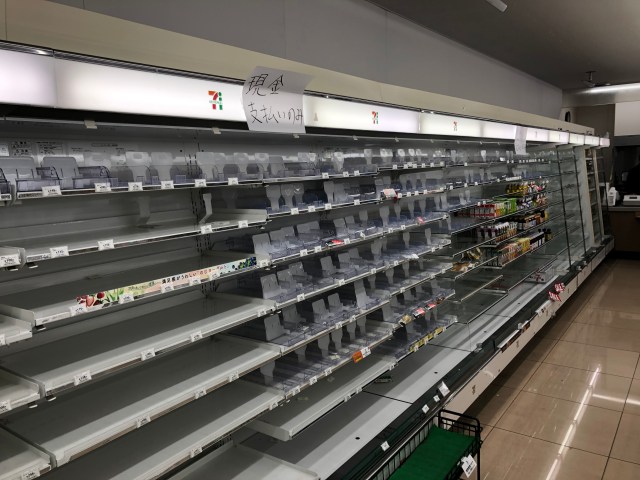
Is this 7-Eleven just being run by a loose cannon, or is it a sign of bigger problems ahead?
Walking into the Higashiosaka Minami-Kamikosaka branch of the massive convenience store chain 7-Eleven, I couldn’t help but feel a little nostalgic to the mom-and-pop shops of my home country. Those kinds of corner stores aren’t as common in urban Japan. Here, the convenience store industry is largely occupied by major chains that barely have enough room to grow themselves, let alone give independent stores enough space to survive.
The shelves were sparsely stocked and the staff wore civilian clothes while working a portable cash register. This was a far cry from the pristine but demanding conditions of a regular Japanese conbini chain where even a few gaps on a shelf or slight appearance of casualness among staff is frowned upon.
Also, this was because the Higashiosaka Minami-Kamikosaka 7-Eleven was technically not a 7-Eleven any more.
This particular store has been the focus of nationwide news for over a year now, after its owner Mitoshi Matsumoto took it upon himself to not be open 24-hours a day due to a lack of staff. This angered the head office who threatened to terminate their franchise agreement, thus sparking a debate over the working conditions of convenience stores in general.
The dispute continued in various forms until 31 December, 2019, when the franchise agreement between Matsumoto and 7-Eleven was ended by the company, saying they received too many complaints from customers. The cancellation was challenged by Matsumoto, and the case is currently in the courts.
The closure was widely covered by media, showing the owner marking down all of his goods for a clearance sale. At that time, it was reported that he would continue to run the store in 2020, but as an independent business rather than a 7-Eleven franchise.
However, when the store reopened on 3 January, many were surprised to find that the 7-Eleven signs were still up and Matsumoto, along with his two remaining staff members were still wearing uniforms.
“I still think this is 7-Eleven,” he told media, adding that while the contract is still in dispute it cannot be cancelled.
This created an odd situation. The store was technically open, but completely cut off from the 7-Eleven system. The ATM was shutdown, no fresh food was delivered, and the cash register stopped working. The people, however, continued to sell. The store had gone rogue.
I decided to visit the unique convenience store myself to find out what was going on. Outside was a poster declaring that a sale was being held to clear out all the stock before the store closes down due to litigation and announcing the new business hours of 9 a.m. to 5 p.m.
▼ The sign appeared hastily written and lacking any of the formalities almost always found on a storefront notice.
Large swaths of the shelves were bare, but an ample supply of snacks and drinks were still being sold, and fried food like corn dogs and chicken were still available. A small-but-steady stream of customers were coming in and out as well and filling up baskets with the discounted goods.
I was able to have a few words with Matsumoto himself, and I asked the obvious: “What’s going on?”
“Basically, we’re just selling off the stock until the dispute is settled,” he told me. “After that, if the court decides I’m wrong, I’ll hand over the store and walk away. If I’m right… I’m not sure what I’ll do next.”
I asked what Matsumoto wanted to do from now on, but he wasn’t sure. “I’m just focused on what’s happening now. I’ll have to think about that later.”
As of our conversation, there had been no contact between 7-Eleven and Matsumoto, so it’s unclear what the company’s intentions are. Perhaps they will remain silent so as not to draw any more media attention and just let him sell off the rest of his goods without incident. On the other hand, they may just be slowed down by the holiday season and will swoop in to shut him down completely within the next few days.
It’s a lot of uncertainty, but he and his small crew are just conducting business as usual until they can’t any longer. Finally, I asked Matsumoto what he thought the future of convenience stores in Japan was.
“There isn’t any. The system is broken because the companies are taking too much from the people running the stores, and there isn’t enough left to run them properly. This is the way things are getting nowadays: people in the highest levels are just interested in getting as much for themselves as they can. You see it everywhere, like Donald Trump in America, these people at the top are only looking out for themselves. It’s the same in Japan and elsewhere too, but it can’t continue like this.”
For his defiance, Matsumoto has sometimes been depicted as a belligerent crank in the media, someone not willing to cooperate and just looking to cause trouble. Granted I only talked with him briefly, but I didn’t get that sense at all. He certainly seemed like a hardheaded and proud man, as you might expect someone in this situation to be, but he was hardly irrational.
And he’s certainly right that the convenience store industry is at a tipping point now. Labor shortages are being made up with an increasing number of short-term foreign workers and possibly completely automated systems in the future. So Matsumoto is absolutely right that things cannot continue the way they are, but much like the future of this canary of a 7-Eleven in the coal mine of Japan, how they will end up is very much in the air.
Photos: ©SoraNews24
● Want to hear about SoraNews24’s latest articles as soon as they’re published? Follow us on Facebook and Twitter!

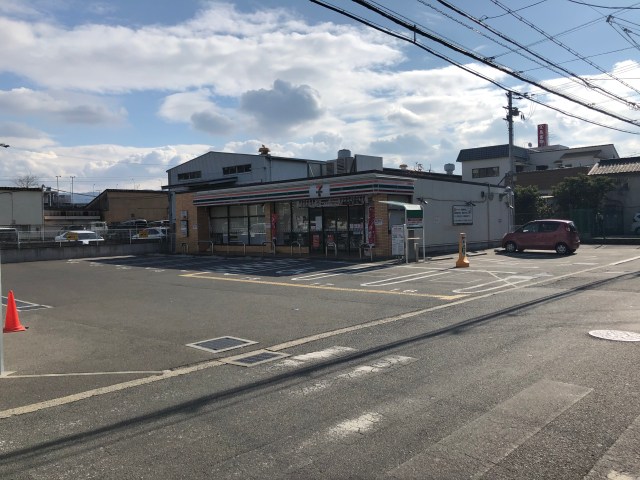
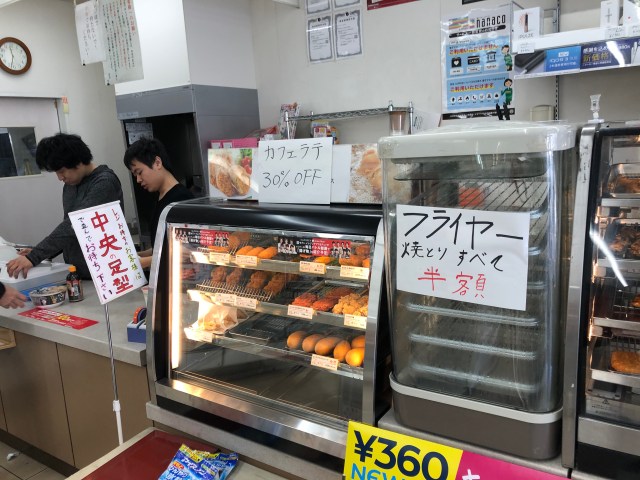
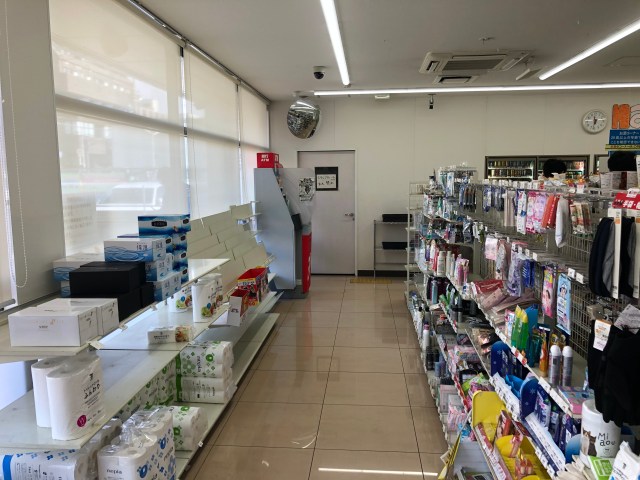

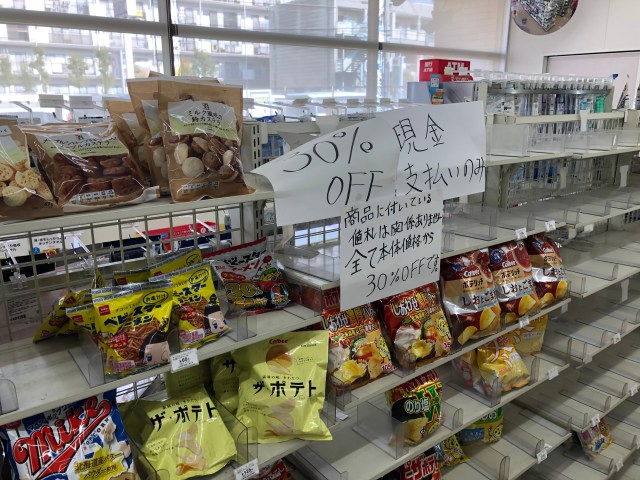
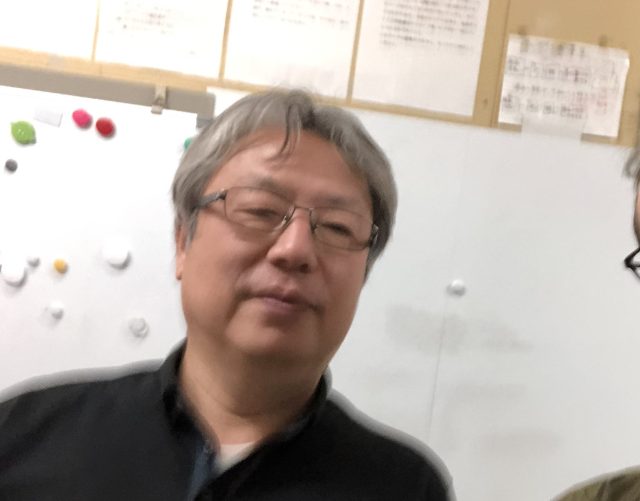
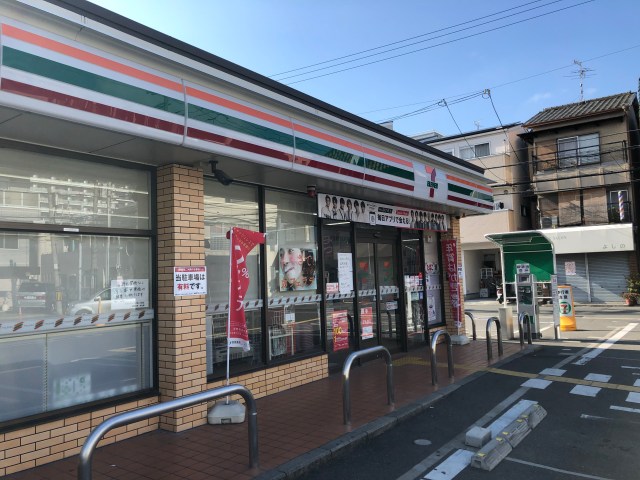
 Ruling reached in lawsuit between 7-Eleven Japan, rogue owner who didn’t stay open 24 hours a day
Ruling reached in lawsuit between 7-Eleven Japan, rogue owner who didn’t stay open 24 hours a day 7-Eleven to build 7-Eleven in parking lot of another 7-Eleven
7-Eleven to build 7-Eleven in parking lot of another 7-Eleven 7-Eleven in parking lot of other 7-Eleven opens for business in Japan
7-Eleven in parking lot of other 7-Eleven opens for business in Japan 7-Eleven opens “next generation” SIP convenience store in Japan
7-Eleven opens “next generation” SIP convenience store in Japan 7-Eleven Japan planning to become even more awesome by baking its own bread in-store
7-Eleven Japan planning to become even more awesome by baking its own bread in-store 420 million yen in cash-filled suitcases stolen on Tokyo streets, incidents at Haneda and Hong Kong follow
420 million yen in cash-filled suitcases stolen on Tokyo streets, incidents at Haneda and Hong Kong follow Kyoto planning surprise late-night inspections of Airbnb-style rentals to fight overtourism
Kyoto planning surprise late-night inspections of Airbnb-style rentals to fight overtourism Japan has been tossing message-bearing coconuts into the ocean since the 1980s
Japan has been tossing message-bearing coconuts into the ocean since the 1980s Yokai are descending upon Tokyo this spring in the latest immersive art experience
Yokai are descending upon Tokyo this spring in the latest immersive art experience Ghibli anime Uno and karuta card games a great way to have fun and maybe learn some Japanese【Pics】
Ghibli anime Uno and karuta card games a great way to have fun and maybe learn some Japanese【Pics】 Ghibli Forest Spirit towel series will delight and/or freak out visitors to your home【Photos】
Ghibli Forest Spirit towel series will delight and/or freak out visitors to your home【Photos】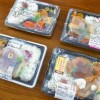 We taste makunouchi bento at four Japanese convenience store chains【Taste comparison】
We taste makunouchi bento at four Japanese convenience store chains【Taste comparison】 Japanese vending machine sells just one thing at this station
Japanese vending machine sells just one thing at this station Japan has a new bar just for people thinking about quitting their jobs, and the drinks are free
Japan has a new bar just for people thinking about quitting their jobs, and the drinks are free Japanese high school volleyball player beaten by coach, teammates for violating no-dating rule
Japanese high school volleyball player beaten by coach, teammates for violating no-dating rule Japan’s Naruto theme park now offering real-world version of Minato’s kunai ninja weapon
Japan’s Naruto theme park now offering real-world version of Minato’s kunai ninja weapon New Studio Ghibli stamps leave an impression on your stationery…and your heart
New Studio Ghibli stamps leave an impression on your stationery…and your heart Archfiend Hello Kitty appears as Sanrio launches new team-up with Yu-Gi-Oh【Pics】
Archfiend Hello Kitty appears as Sanrio launches new team-up with Yu-Gi-Oh【Pics】 If you haven’t tried an antenna shop in Japan, you’re missing out
If you haven’t tried an antenna shop in Japan, you’re missing out Japan cherry blossom forecast update moves up sakura dates for many parts of the country
Japan cherry blossom forecast update moves up sakura dates for many parts of the country Studio Ghibli releases Spirited Away bags in Japan, based on a mysterious festival
Studio Ghibli releases Spirited Away bags in Japan, based on a mysterious festival Japanese young women reveal their top dealbreakers in a man【Survey】
Japanese young women reveal their top dealbreakers in a man【Survey】 Studio Ghibli turns My Neighbour Totoro characters into bag charms for everyday adventures
Studio Ghibli turns My Neighbour Totoro characters into bag charms for everyday adventures Starbucks Japan releases new drinkware and goods for Valentine’s Day
Starbucks Japan releases new drinkware and goods for Valentine’s Day Japan releases first official sakura cherry blossom forecast for 2026
Japan releases first official sakura cherry blossom forecast for 2026 10 times to avoid traveling in Japan in 2026
10 times to avoid traveling in Japan in 2026 Starbucks Japan releases new Frappuccino and latte for Valentine’s Day
Starbucks Japan releases new Frappuccino and latte for Valentine’s Day Our 52-year-old pole dancing reporter shares his tips for achieving your New Year’s exercise goal
Our 52-year-old pole dancing reporter shares his tips for achieving your New Year’s exercise goal China’s don’t-go-to-Japan warning looks to be affecting tourist crowds on Miyajima
China’s don’t-go-to-Japan warning looks to be affecting tourist crowds on Miyajima Studio Ghibli releases new “komorebi” plush toys from Princess Mononoke and Spirited Away
Studio Ghibli releases new “komorebi” plush toys from Princess Mononoke and Spirited Away Ramen restaurant’s English menu prices are nearly double its Japanese ones, denies discriminating
Ramen restaurant’s English menu prices are nearly double its Japanese ones, denies discriminating Survey asks foreign tourists what bothered them in Japan, more than half gave same answer
Survey asks foreign tourists what bothered them in Japan, more than half gave same answer Japan’s human washing machines will go on sale to general public, demos to be held in Tokyo
Japan’s human washing machines will go on sale to general public, demos to be held in Tokyo We deeply regret going into this tunnel on our walk in the mountains of Japan
We deeply regret going into this tunnel on our walk in the mountains of Japan Studio Ghibli releases Kodama forest spirits from Princess Mononoke to light up your home
Studio Ghibli releases Kodama forest spirits from Princess Mononoke to light up your home Major Japanese hotel chain says reservations via overseas booking sites may not be valid
Major Japanese hotel chain says reservations via overseas booking sites may not be valid Put sesame oil in your coffee? Japanese maker says it’s the best way to start your day【Taste test】
Put sesame oil in your coffee? Japanese maker says it’s the best way to start your day【Taste test】 No more using real katana for tourism activities, Japan’s National Police Agency says
No more using real katana for tourism activities, Japan’s National Police Agency says Starbucks Japan reveals new sakura drinkware collection, inspired by evening cherry blossoms
Starbucks Japan reveals new sakura drinkware collection, inspired by evening cherry blossoms Updated cherry blossom forecast shows extra-long sakura season for Japan this year
Updated cherry blossom forecast shows extra-long sakura season for Japan this year This 7-Eleven convenience store causes a buzz with foreigners online
This 7-Eleven convenience store causes a buzz with foreigners online 7-Eleven Japan opens first stores in Kouchi Prefecture, nationwide domination almost complete
7-Eleven Japan opens first stores in Kouchi Prefecture, nationwide domination almost complete 7-Eleven Japan releases fukubukuro lucky bags filled with convenience store surprises
7-Eleven Japan releases fukubukuro lucky bags filled with convenience store surprises 7-Eleven showcases its newest robots for cleaning, stocking, and customer service
7-Eleven showcases its newest robots for cleaning, stocking, and customer service Canadian corporation withdraws bid to acquire 7-Eleven Japan and its parent company
Canadian corporation withdraws bid to acquire 7-Eleven Japan and its parent company New convenience store chain to rival 7-Eleven opens in Japan
New convenience store chain to rival 7-Eleven opens in Japan Why 7-Eleven Quite Literally Dominates, and Why You Won’t Find One in Shikoku… Yet
Why 7-Eleven Quite Literally Dominates, and Why You Won’t Find One in Shikoku… Yet 7-Eleven store resorts to cute illustration and heartfelt message to help sell excess pasta
7-Eleven store resorts to cute illustration and heartfelt message to help sell excess pasta 10 things you should buy at 7-Eleven in Japan
10 things you should buy at 7-Eleven in Japan 7-Eleven’s new whipped cream sandwich takes Japanese convenience store food to a whole new level
7-Eleven’s new whipped cream sandwich takes Japanese convenience store food to a whole new level 7-Eleven smoothie gets perfect reviews but we find a flaw in the viral convenience store drink
7-Eleven smoothie gets perfect reviews but we find a flaw in the viral convenience store drink 7-Eleven Japan introduces extra large size coffees at stores… but how big are they?
7-Eleven Japan introduces extra large size coffees at stores… but how big are they? Is this 7-Eleven sign in Japan really 711 metres from the store?
Is this 7-Eleven sign in Japan really 711 metres from the store? We taste-test 7-Eleven’s new fusion cuisine: the Cheese Dak-galbi Burrito!
We taste-test 7-Eleven’s new fusion cuisine: the Cheese Dak-galbi Burrito! What’s inside these 7-Eleven lucky bags?
What’s inside these 7-Eleven lucky bags? 7-Eleven releases a secret Cafe Latte Smoothie at select stores in Japan
7-Eleven releases a secret Cafe Latte Smoothie at select stores in Japan
Leave a Reply